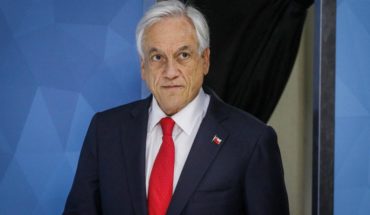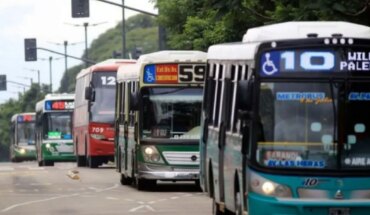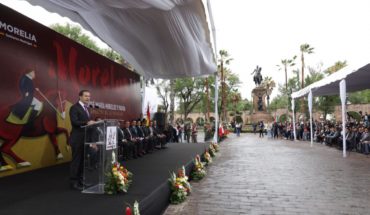PEACE (AP) — Where is the power line in a Bolivia in crisis? Jeanine Añez, the opposition senator who claimed the interim presidency of the Andean country, appears to have the backing of the police, the army and the Church.But even in her self-imposed exile in Mexico after resigning because of pressure from the armed forces, former President Evo Morales said he would be willing to return to Bolivia. His supporters perform a show of force in the streets and his party has a majority in both houses of Congress.
Life returned to normal briefly on Wednesday morning, hours after Añez took power. Morales’ enemies celebrated by waving national flags before lifting blockades installed on roads across the country. The shops rolled up the metal shutters that protect them from looting. Public transport was back to normal in La Paz.But violent clashes broke out between Loyalists and the capital police, which stretched well into the night. Supporters of the ex-staff also took to the streets in the city of El Alto, near La Paz and a stronghold to Morales, with the multicolored indigenous flag and singing “Now, Civil War!” In the center of La Paz, the demonstrators, who threw stones, ripped metal plates and wooden boards from construction sites for use as weapons, and some ignited cartridges of dynamite. Riot police responded with rounds of tear gas as fighter jets roared on low flights over the crowd in a show of force. This is an indication of the challenges faced by Añez, who was a second-line lawmaker until she took over the presidency on the grounds that Morales’ march created a power vacuum. The senator has to gain recognition, stabilize the country and organize new elections within 90 days, as well as rebuild after weeks of violent protests against Morales after winning the elections of October 20, which were peppered with allegations of fraud. The riots, and the erosion of their supports, led the country’s first indigenous president to flee to Mexico after nearly 14 years in power.” If the indigenous social movement sees this as an effort by the old elite to restore the old order in the Bolivian Society, I believe this is the recipe for enormous political conflict,” said Kenneth Roberts, a government professor at Cornell University in Ithaca, New York.Morales changed the politics of this country ruled for decades by descendants of more clearly complexed Europeans by reversing deep inequality. The economy grew strongly thanks to rising commodity prices. It also enacted a new Constitution that created a Congress with seats reserved for indigenous minorities and allowing self-government of native communities. Although some of his followers were unhappy at his insistence on clinging to power, Morales remains a popular figure, especially among the Aymara, the ethnic group to which he belongs. Many of them are concerned about the possible loss of profits achieved and protested reports that the Wiphala, the multicolored flag that represents them, was burned by opposition supporters. One of the protesters, Magenta Villamil, lamented that the “more than 13 years of progress with Evo were lost in a minute” with his resignation. Añez also faces a challenge in Congress, where lawmakers loyal to Morales increasingly question their legitimacy and tried to convene new sessions that could undermine their claim to hold the presidency. The sessions, rejected by Añez’s faction, increased political uncertainty in the country. Morales supporters, who have a two-thirds majority in Congress, boycotted the meeting convened Tuesday night by Añez to formalize their claim preventing quorum. However, the senator went ahead with the process, claiming that the Constitution does not specifically require the approval of the chamber. The Bolivian high court issued a statement presenting the legal justification for Añez’s claim, although it did not mention his name. Other legal experts questioned the technicalities that led to his claim and noted that at least some of the steps required Congress to meet. Eduardo Gamarra, a Bolivian political scientist at Florida International University, said the Constitution clearly states that Añez does not need the vote of the deputies to take office. However, the coming months “will be extraordinarily difficult for President Añez,” she added.
The former president of Bolivia, Evo Morales, gives a speech after receiving the Distinguished Guest Medal of Mexico City, on November 13, 2019. (AP Photo/Eduardo Verdugo)
The leader will have to form a new electoral tribunal and find nonpartisan staff for the agency, and have the Congress, which is in the hands of the Morales Movement to Socialism party, vote in favor of anticipating the elections. The crisis in the country worsened on Sunday, when an audit by the Organization of American States (OAS) reported widespread irregularities in the October 20 election and called for a new call. Morales agreed to set a new date, but a few hours later resigned after General Williams Kaliman, commander of the armed forces, urged him to resign “for the good of Bolivia.” Kaliman had been loyal to Morales, but both the former president and the opposition called the general’s action in a coup.Añez sworn in his new government on Wednesday and appointed new commanders-in-chief for all branches of the army, relied on Kaliman. The move was seen as an effort to form an alliance with the army. He also met with dozens of police officers and assured them that they would get the working conditions they demanded and that they never achieved with Morales. The agents stationed before the presidency palace left their posts, and in some cities they released salvos a day after the resignation. Añez also received the backing of Morales’ main rival in the controversial October elections, former President Carlos Mesa, who finished second. It was unclear how much support you will have in other power centres in the country. His initiative received some international support as well. Michael G. Kozak of the US State Department’s Office of Western Hemisphere Affairs addressed her as “constitutional interim president.” Brazil, which is one of Bolivia’s main trading partners, congratulated her on her “constitutional” promotion to the presidency. But in Argentina, where there is a large Bolivian population, lawmakers from both chambers condemned what they saw as a coupd.From Mexico, Morales pledged to maintain an active role in Bolivian politics while mayors loyal to him in rural areas continue to mobilize large masses. At a press conference in Mexico City on Wednesday, Morales noted that “If people ask me, we’re willing to come back.”





